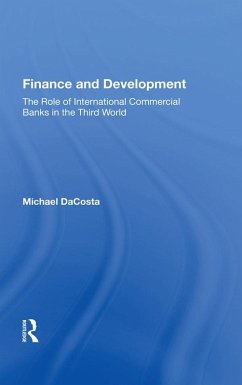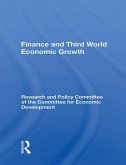Although commercial banks have played an increasingly important role in providing capital to developing nations, many analysts argue that private financing poses risks both to borrowing nations and the stability of the international economic system. In response, Mr. DaCosta demonstrates that developing nations that adopt appropriate policies can ga
Dieser Download kann aus rechtlichen Gründen nur mit Rechnungsadresse in A, B, BG, CY, CZ, D, DK, EW, E, FIN, F, GR, HR, H, IRL, I, LT, L, LR, M, NL, PL, P, R, S, SLO, SK ausgeliefert werden.









